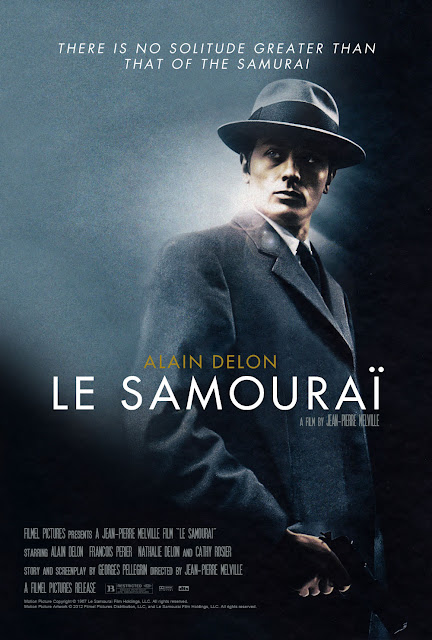Le Samourai (1967) – J.-P. Melville
Jean-Pierre Melville is one of my favourite directors – his films typically combine elements of film noir (gangsters, heists) with the technique of Robert Bresson (an existential focus on process) and an obsessive commitment to particular colour palettes. I have seen Le Samourai, starring Alain Delon as a lone wolf hitman, countless times, having once owned it on VHS. However, only last night (after watching it again and reading an interview with Melville), did I think that the movie had another more mystical reading than the standard surface understanding. More specifically, I had never thought that the pianiste, Cathy Rosier, who witnesses Jef Costello (Delon) executing his contract (a club owner) might actually be Death herself. One remembers that Melville worked with Cocteau early on (Les Enfants Terrible, 1950) and was perhaps influenced by the latter’s Orpheus (also 1950) in which Death is also personified. In any event, to reconceptualize Jef as infatuated with his own death rather than the piano player is almost to see a different film (and one where the ending is somewhat even more satisfying). Of course, the straightforward reading of the film still works too, with Jef compromised when he is seen by witnesses and confused when his no-longer-airtight alibi still holds up (his pursuit of Cathy to understand why she didn’t dob him in and their subsequent triste is the alternate explanation for his final act). As with most Melville films, there is great pleasure here in following Jef’s methodical actions as he comes to terms with his situation, fleeing the police (led by crafty Commissaire François Périer) and contending with his double-crossing employers. Delon remains cool throughout. A masterpiece.








.jpg)





